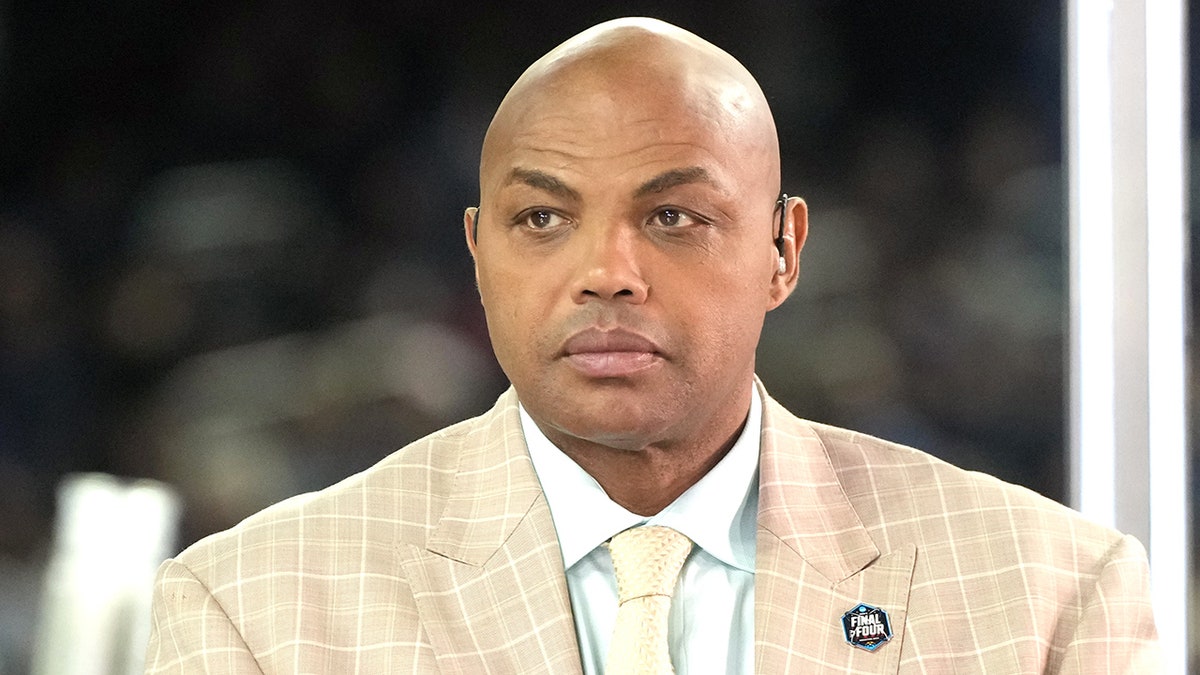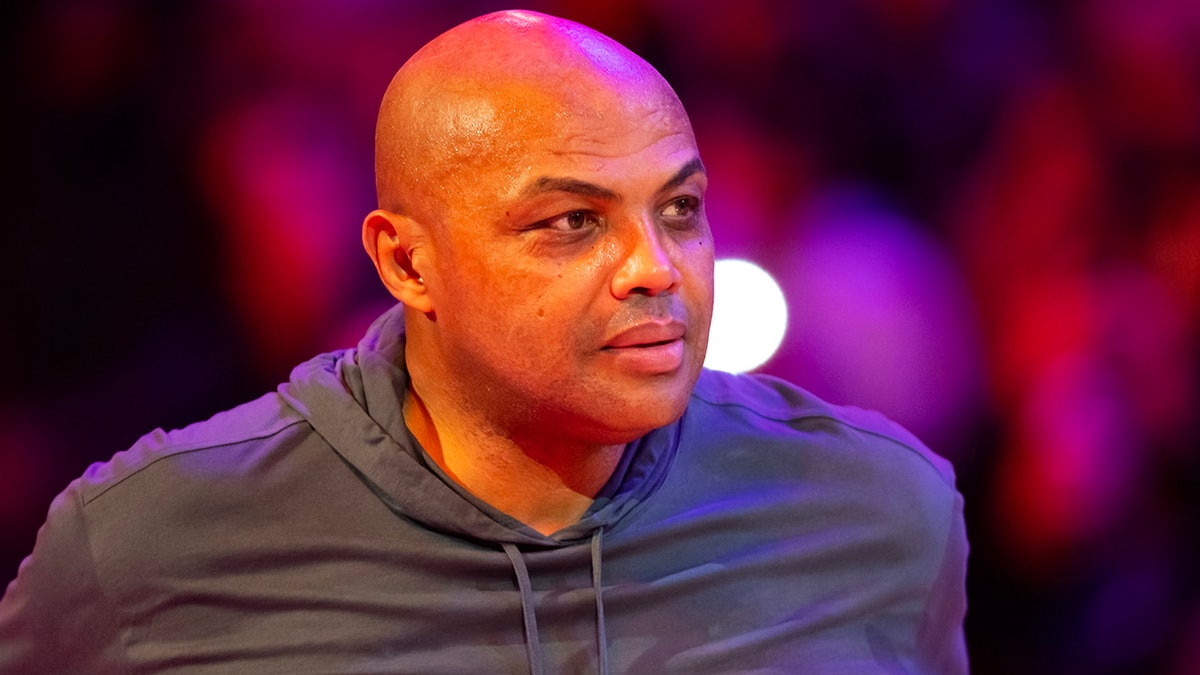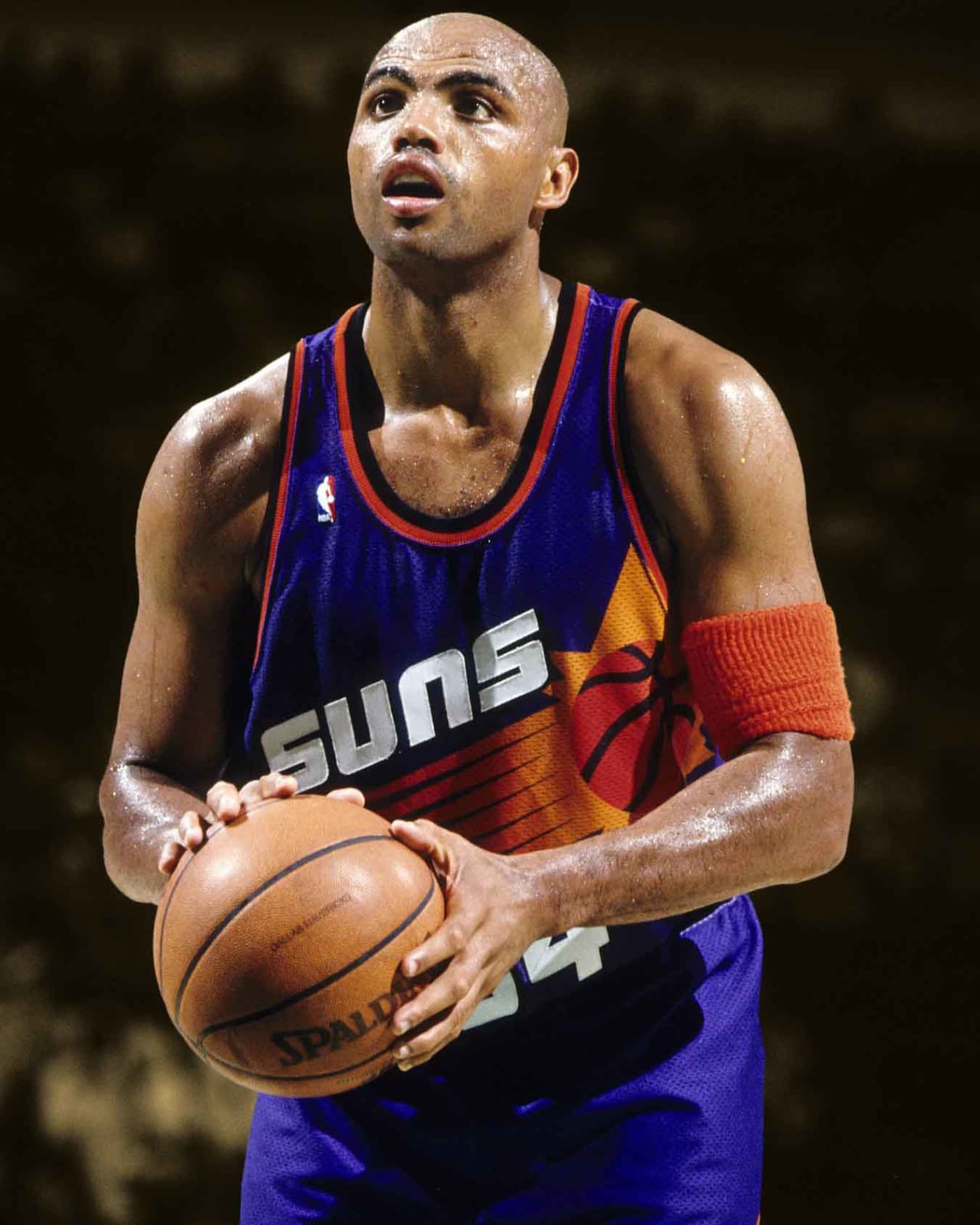Charles Barkley (Part 2)
Charles Barkley (Part 2)

Charles Barkley's entry into the NBA with the Philadelphia 76ers marked the beginning of a remarkable career in professional basketball. Selected with the fifth overall pick in the 1984 NBA draft, Barkley joined a star-studded team led by legends such as Julius Erving, Moses Malone, and Maurice Cheeks, who had recently won the NBA championship in 1983.
Under the mentorship of Moses Malone, Barkley quickly adapted to the demands of the NBA and learned valuable lessons about conditioning and preparation. Malone's influence on Barkley was profound, with Barkley often referring to him as "Dad" and crediting him as the most influential player of his career.
In his rookie season, Barkley demonstrated his potential by averaging 14.0 points and 8.6 rebounds per game, earning a spot on the All-Rookie Team. Despite the team's success in reaching the Eastern Conference Finals, they were ultimately defeated by the Boston Celtics in five games. Barkley's postseason performance, however, showcased his ability to excel under pressure, averaging a double-double with 14.9 points and 11.1 rebounds per game.
Barkley's sophomore year saw significant improvement as he emerged as the team's leading rebounder and second-leading scorer, averaging an impressive 20.0 points and 12.8 rebounds per game. He earned a spot on the All-NBA Second Team and helped lead the Sixers to the playoffs once again. Despite his outstanding individual performance, the team fell short in the Eastern Conference Semifinals, losing to the Milwaukee Bucks in a hard-fought series.
Barkley's early years in the NBA established him as one of the league's rising stars, showcasing his versatility, athleticism, and determination on the court. His success with the Sixers laid the foundation for a remarkable career that would see him become one of the most dominant and influential players in NBA history.
During the 1986–87 season, following Moses Malone's departure, Charles Barkley took on a greater leadership role within the Philadelphia 76ers. He showcased his versatility and dominance on the court, delivering standout performances that solidified his reputation as one of the NBA's premier players.
Barkley's remarkable season was highlighted by several noteworthy achievements. On November 4, 1986, he recorded an impressive triple-double with 34 points, 10 rebounds, and a career-high 14 assists in a game against the Indiana Pacers. Later in the season, Barkley grabbed a career-high 25 rebounds, including 16 offensive boards, in a single game against the Denver Nuggets on March 20, 1987. He led the league in rebounding with an average of 14.6 rebounds per game and topped the charts in offensive rebounds with 5.7 per game, earning his first and only rebounding title.
Amidst his stellar individual performances, Barkley earned his first NBA All-Star selection and secured a spot on the All-NBA Second Team for the second consecutive year. However, despite Barkley's contributions, the Sixers fell short in the playoffs, losing to the Milwaukee Bucks in a five-game first-round series.
The subsequent seasons saw Barkley emerge as the franchise player for the Sixers following Julius Erving's retirement. He continued to elevate his game, delivering consistently outstanding performances and earning recognition as one of the league's top players.
In the 1988–89 season, Barkley showcased his scoring prowess by averaging 28.3 points per game on an impressive .587 shooting percentage. Despite his individual success, the Sixers failed to make the playoffs for the first time since the 1974–75 season.
Barkley's exceptional play persisted in the following seasons, earning him multiple All-Star selections and All-NBA First Team honors. He consistently led the Sixers in scoring and rebounding, solidifying his status as one of the most dominant forces in the league.
However, despite Barkley's remarkable contributions, the Sixers struggled to find postseason success, facing early exits in the playoffs. Despite his individual accolades and remarkable statistics, Barkley's tenure with the Sixers ultimately came to an end after the 1991–92 season, when he was traded to the Phoenix Suns.
Throughout his time in Philadelphia, Barkley left an indelible mark on the franchise, becoming one of its most iconic figures. His electrifying style of play, combined with his outspoken personality, endeared him to fans and solidified his legacy as one of the NBA's all-time greats.
The incident on March 26, 1991, during a game against the New Jersey Nets, where Charles Barkley attempted to spit on a fan but accidentally hit a young girl, indeed became a significant moment in Barkley's career. The act drew widespread condemnation and led to Barkley being suspended without pay for one game and fined $10,000 by the NBA.
Barkley's actions during that game were heavily criticized, and the incident received extensive media coverage, tarnishing his reputation to some extent. However, Barkley later expressed regret over the incident and acknowledged that it taught him a valuable lesson about controlling his emotions on the court.
In hindsight, Barkley viewed the incident as a turning point in his career, leading him to reassess his approach to the game. He recognized that his intense desire to win had sometimes clouded his judgment and caused him to lose sight of the importance of respecting the game and playing with sportsmanship.
Barkley's apology and efforts to make amends with the girl and her family demonstrated his willingness to take responsibility for his actions and learn from his mistakes. Despite the controversy surrounding the incident, Barkley's remorse and subsequent actions to rectify the situation helped to mitigate some of the negative fallout.
Ultimately, Barkley's reflection on the spitting incident and his acknowledgment of its impact on his approach to the game highlight his growth as a person and a player. It serves as a reminder that even in the heat of competition, maintaining composure and respect for the game and others involved is paramount.
References
- "Listen up: TNT to Debut New Talk Show with Charles Barkley". September 26, 2002. Archived from the original on April 23, 2023. Retrieved April 23, 2023.
- ^ Ausiello, Michael (July 31, 2016). "Charles Barkley disrupts status quo". TVLine. Archived from the original on August 2, 2016. Retrieved August 1, 2016.
- ^ Ali, Lorraine (May 4, 2017). "Charles Barkley gives the 'American Race' some real traction". Los Angeles Times. Archived from the original on November 5, 2018. Retrieved October 29, 2018.
- ^ Voisin, Ailene (May 9, 2017). "Charles Barkley's TNT series hits home on race, religion and sexuality". Sacramento Bee. Archived from the original on October 12, 2018. Retrieved October 29, 2018.
- ^ Goodkind, Nicole (April 22, 2023). "Gayle King and Charles Barkley to host new prime-time show on CNN, company announces". CNN. Archived from the original on April 23, 2023. Retrieved April 23, 2023.
- a b Staff (December 10, 2021). "Charles Barkley says he named daughter after Christiana Mall in Delaware". Philadelphia, PA: WPVI-TV. Archived from the original on June 19, 2022. Retrieved December 16, 2021.
- ^ Carter, Bob (May 1, 2006). "Barkley was chairman of the boards Archived November 4, 2012, at the Wayback Machine". ESPN. Retrieved September 14, 2009.
- ^ The game that changed Charles Barkley's life | 60 Minutes, archived from the original on March 30, 2023, retrieved March 30, 2023
- ^ LatinasEn4 (January 14, 2010). "Lopez Tonight – DNA Test [December 13, 2010]". Archived from the original on April 13, 2019. Retrieved October 29, 2018 – via YouTube.
- a b c d "Barkley admits huge losses, big gains while gambling". ESPN. Associated Press. February 5, 2007. Archived from the original on February 8, 2007. Retrieved March 6, 2007.
- a b "Barkley claims gambling problem has cost him $10M". ESPN. Associated Press. May 3, 2006. Archived from the original on August 7, 2007. Retrieved July 22, 2007.
- ^ Ritter, Ken (May 15, 2008). "Barkley says he'll pay huge gambling debt". USA Today. Archived from the original on July 18, 2009. Retrieved May 16, 2009.
- ^ "Barkley: 'I've got to stop gambling'". USA Today. Associated Press. Archived from the original on November 7, 2021. Retrieved August 9, 2008.
- ^ Meyers, Alex (July 13, 2021). "Charles Barkley's big (losing) bet on himself, Lexi Thompson's bold business venture and an all-time celebrity golf choke". Golf Digest. Archived from the original on July 13, 2021. Retrieved January 21, 2022.
- ^ McClellan, Bob (June 16, 2021). "Charles Barkley, former NBA star now PGA TOUR Champions fan". pgatour.com. Archived from the original on June 16, 2021. Retrieved January 21, 2022.



































